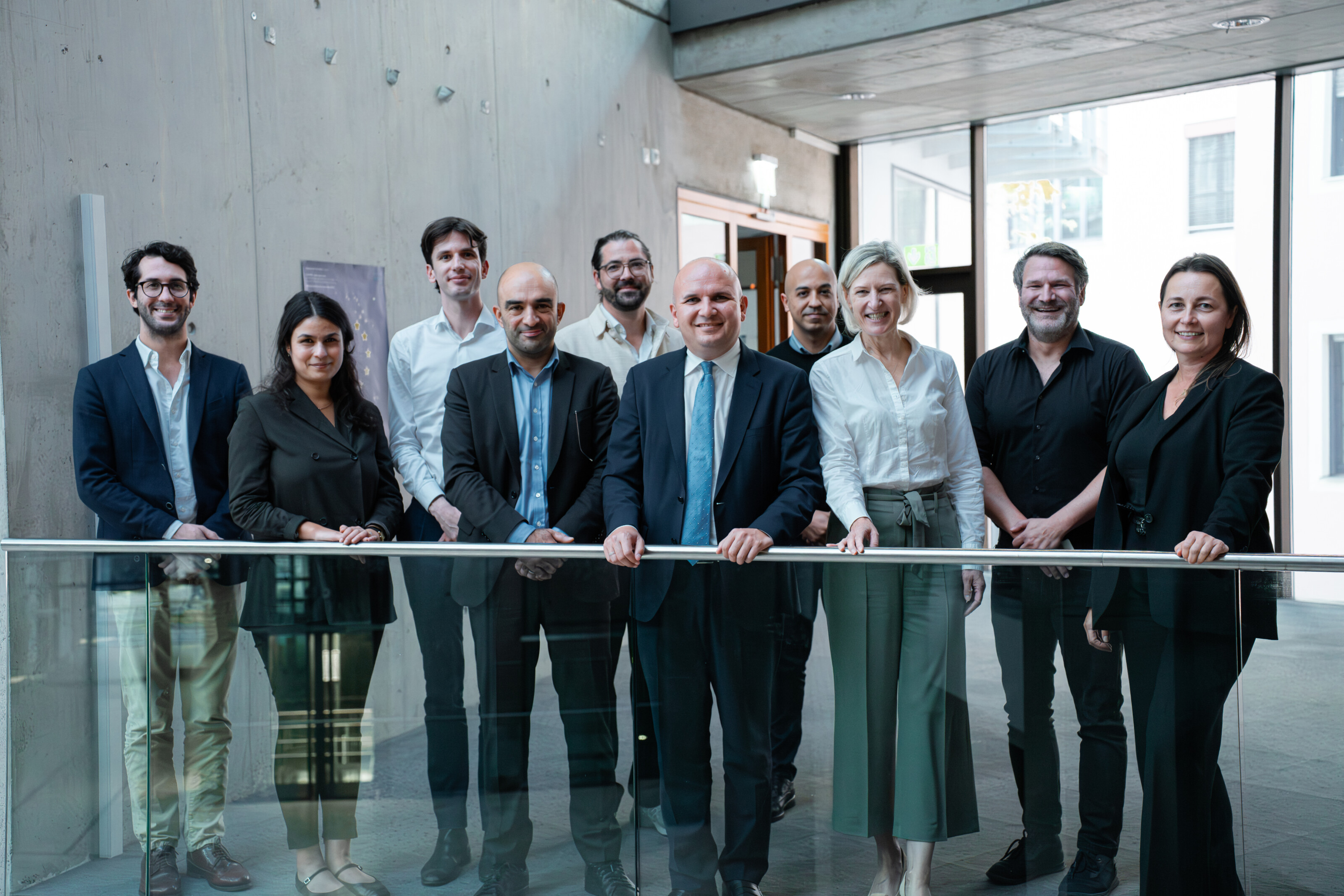
JURI Committee Visit to the TUM Think Tank
What can the EU learn from other regions of the world when it comes to governing emerging technologies, especially in the fields of AI, data, and the digital economy? This guiding question shaped the exchange between the TUM Think Tank and a visiting delegation from the European Parliament’s Committee on Legal Affairs (JURI).
The visit, chaired by Ilhan Kyuchyuk (Member of the European Parliament, MEP), and joined by fellow MEPs Arash Saeidi and Angelika Niebler, brought together political advisors, members of the JURI Secretariat, and the European Parliament Liaison Office Munich. Over the course of one hour, experts from the TUM Think Tank and international partners provided comparative perspectives, sparking lively debate on the future of European digital governance.
Framing the Discussion
The exchange was structured around two complementary perspectives:
International Innovation in Regulation & Governance
How can European regulators draw inspiration from approaches tested abroad? Examples included regulatory sandboxes, participatory design processes, data commons, and regulatory experimentation – tools that can help bridge the gap between fast-moving technologies and responsive governance.
Global Reception of EU Norms & Regulation
The EU has been a global standard-setter with instruments such as the GDPR, the AI Act, and the Data Governance Act (DGA). But how are these norms interpreted, adapted, and sometimes challenged in other regions of the world? Understanding this feedback loop is crucial for shaping rules that remain effective and legitimate internationally.
Expert Perspectives
In a lightning round of short, provocative inputs, our experts shared insights from their fields:
- Pablo Gómez Ayerbe highlighted lessons from Latin America, where policy innovation and privacy-by-design sandboxes offer useful models for Europe.
- Noha Lea Halim emphasized the human rights dimension of AI governance and the importance of safeguarding digital self-determination in global debates.
- Andras Molnar drew on his experience at the OECD and Harvard to compare international approaches to online safety, data governance, and AI liability.
- Sebastian Schwemer reflected on Europe’s global role in shaping digital policy, while pointing to the need for regulatory agility in light of rapidly evolving technologies.
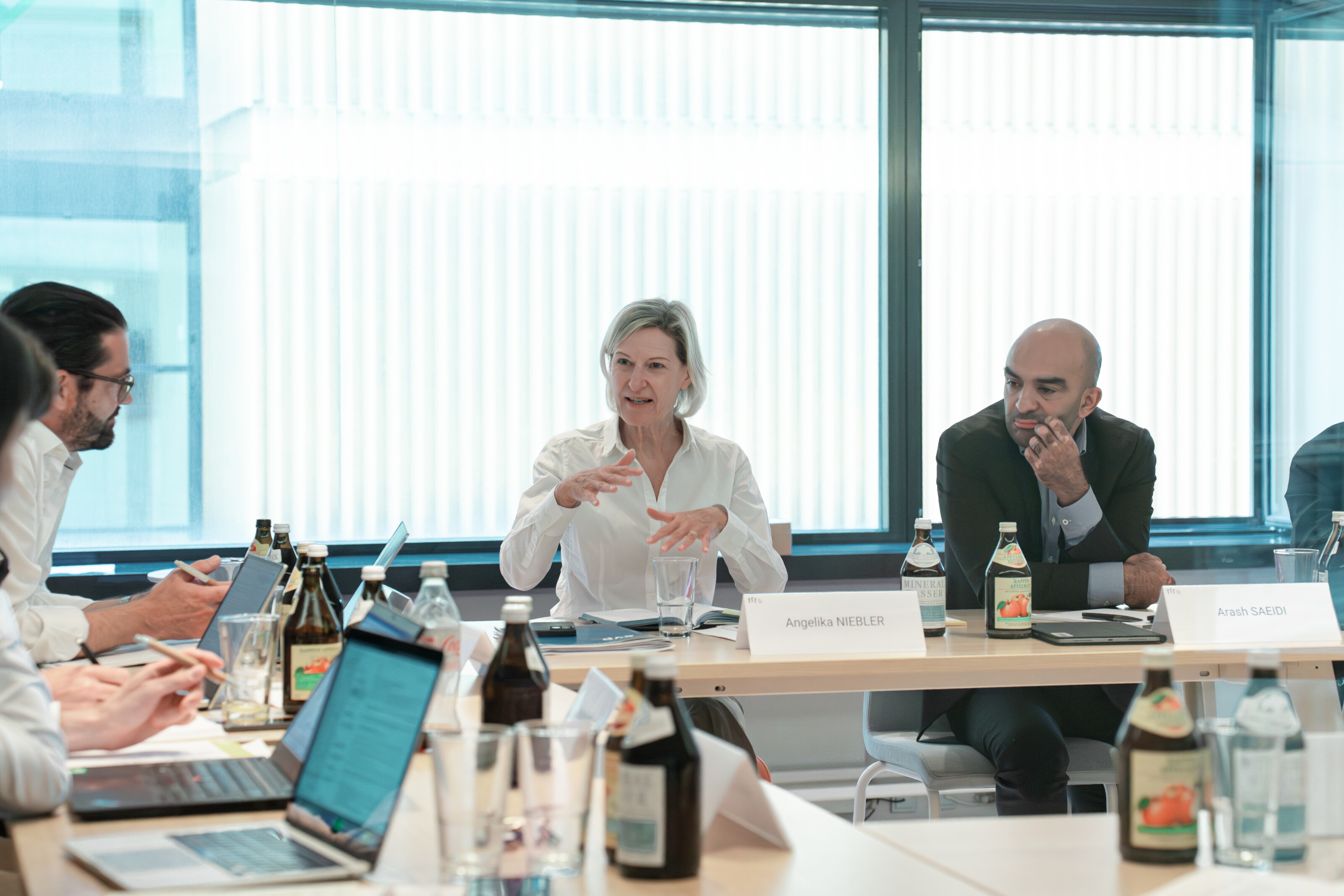
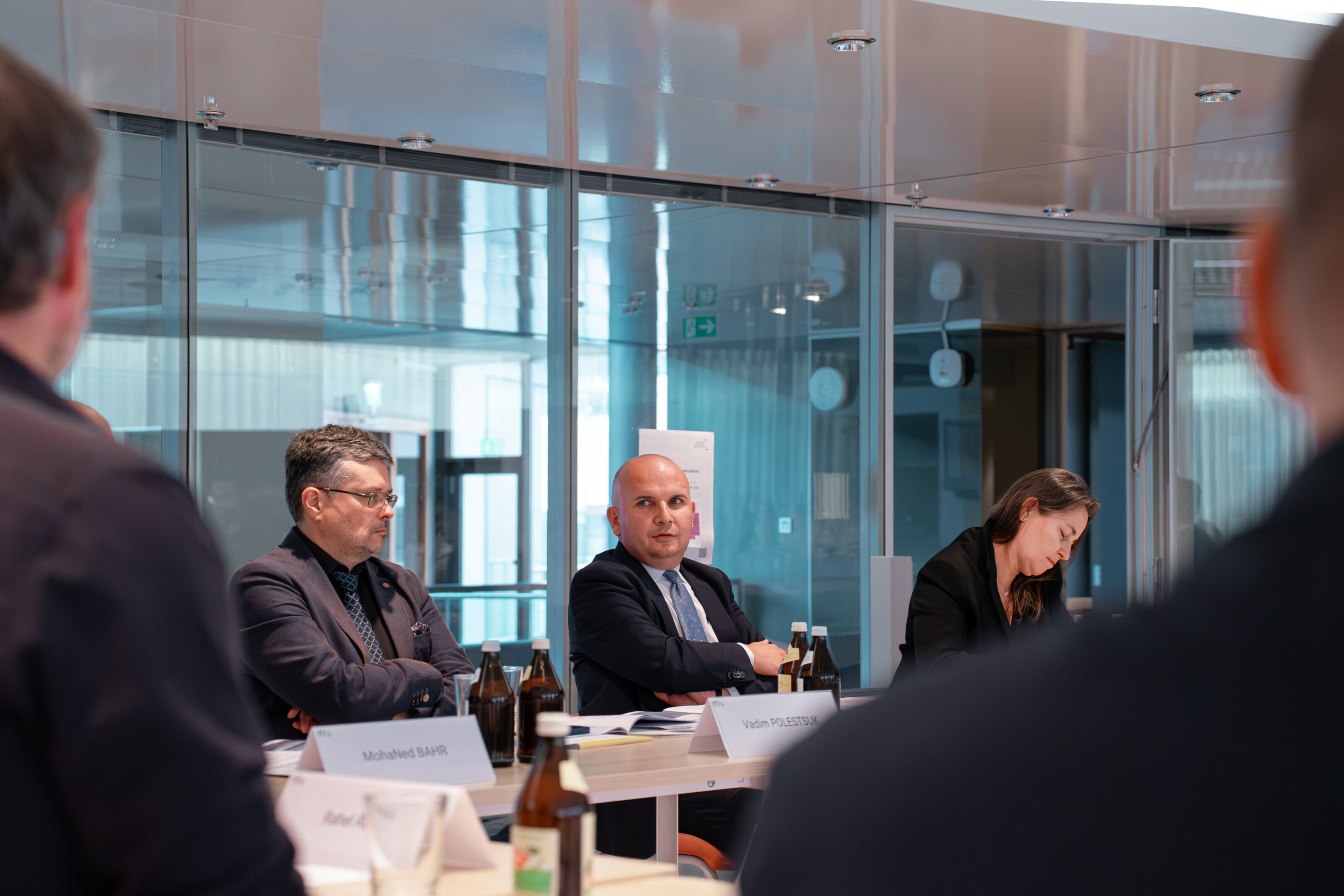
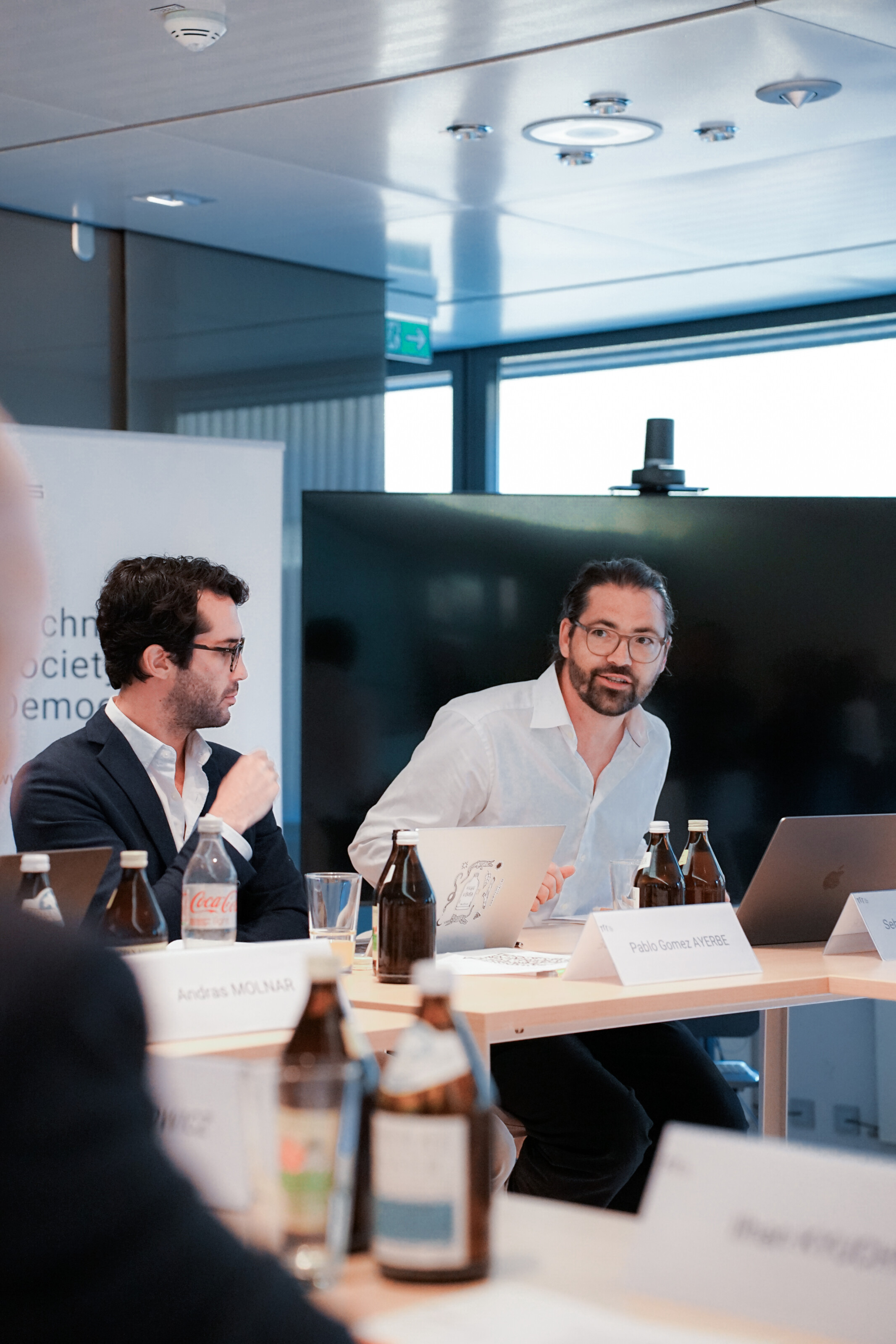
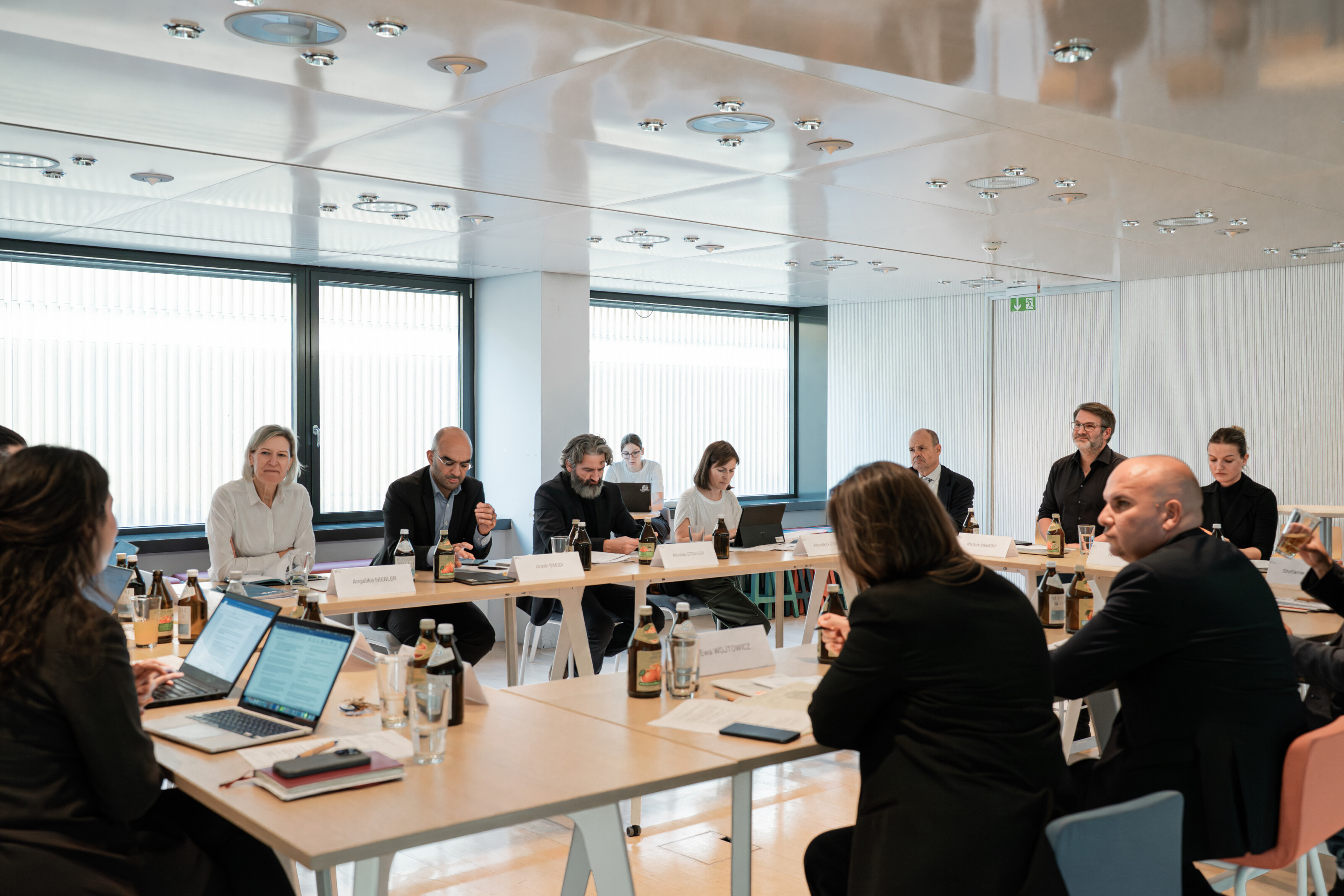
True to the TUM Think Tank’s mission of creating productive dialogue between science, politics and society, the session was designed to be interactive and dynamic. Our experts offered crisp starting points that invited deeper exchange with Members of Parliament and advisors. This format allowed for constructive debate, bridging academic expertise and political practice, and underscored the Think Tank’s role as a platform for connecting diverse perspectives.
At the TUM Think Tank, we are dedicated to exploring new approaches of governing technology. We examine how rights frameworks, processes, and institutions can be updated and applied dynamically as knowledge advances. In this context, we explored the role that sandboxes, policy experimentation, and participatory approaches can contribute in the search for striking the right balance between innovation and regulation.
Looking Ahead
We are grateful to our European Parliament guests for their openness, curiosity, and willingness to engage in dialogue at the intersection of research and policy. The TUM Think Tank will continue to serve as a hub where innovative ideas meet practical decision-making, and where Europe’s digital future can be shaped in conversation with global perspectives.
A special thanks goes to our partners in making this exchange possible: TUM Global, Stefanie Lehmann, the European Parliament Liaison Office Munich, Udo Bux, and Atanaska Koleva.